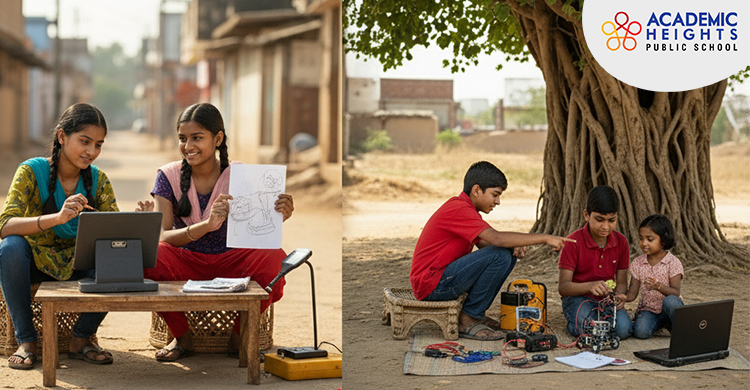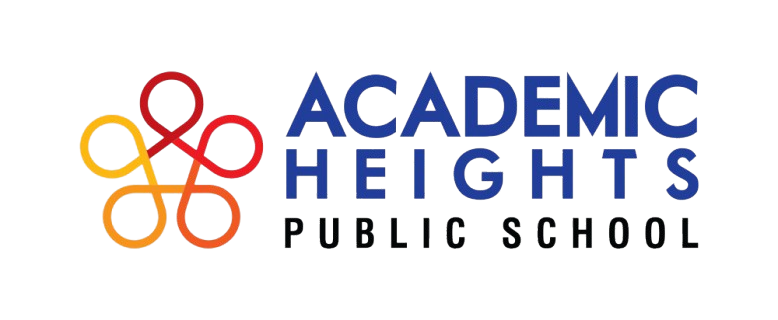Real-world skills for students are among the most important lessons to learn beyond academics. Students develop resilience, creativity, and adaptability through real-world experiences—qualities that are essential for making informed life decisions. Students who frequently encounter real-life situations often face significant challenges because these situations rarely have clear instructions or predictable outcomes. To prepare them for such challenges, activities such as outdoor learning, volunteer work, or skill-building projects. That encourages critical thinking, helps them weigh options, and prepares them to adapt quickly to changing circumstances. At Academic Heights, we believe in learning beyond textbooks, helping children grow into confident individuals ready to face future challenges. In this blog, we will investigate the role of real-world skills in employment, their benefits, and how to develop these skills.
Why Do Real-Life Skills Matter?
There are certain skills that textbooks do not teach. In the modern workplace, teamwork, leadership, creativity, and critical thinking are valued just as highly as subject matter expertise. Therefore, various life skills such as empathy, respect, and global awareness are taught through group projects and career simulations. They are also developing real-world skills programs and other methods.
The Role of Developing Real-World Skills Beyond Academics

These days, schools emphasise practical skills such as cooperation, communication, problem-solving, and flexibility, extending beyond academics. Strong communication also plays a key role in personal growth — learn more about the importance of open communication with teens. These skills enable students to overcome obstacles, excel in the workplace, and develop into responsible adults, giving education a genuine purpose both within and outside of the classroom.
- Enhances Employability: Students gain analytical, communication, cooperation, and adaptability skills by acquiring practical knowledge beyond the classroom. Along with enhancing academic knowledge, these practical skills help students become more self-assured and competent in fast-paced work environments. It also increases their employability as companies look for adaptable workers who are prepared to take on real-world professional difficulties.
- Builds Adaptability: Developing real-life skills for learning outside the classroom increases flexibility by encouraging students to think critically, take on challenges, and adapt to varying situations. From collaboration to problem-solving, these abilities equip students to face uncertainty directly, ensuring their success in various settings and their continued readiness for the future in a rapidly changing world.
- Improves Decision-Making: Students’ decision-making skills are sharpened through real-world skills as they learn to analyse situations, weigh options, and predict outcomes. In both academics and everyday life, skills like problem-solving, critical thinking, and emotional intelligence help them build confidence, handle challenges effectively, and make informed choices.
- Encourages Lifelong Learning: By teaching students how to think critically, adjust to change, and overcome daily obstacles, developing real-world skills beyond the classroom promotes lifelong learning. These abilities foster self-reliance, curiosity, and a growth mindset, ensuring that learning is a continuous process across all of life’s experiences, both personal and professional.
- Boosts Personal Growth: Building practical skills fosters personal development by enhancing self-assurance, self-awareness, and accountability. Students overcome obstacles, find their strengths, and develop resilience through problem-solving, teamwork, and decision-making. These experiences ensure balanced development in addition to academic success by preparing them to face life’s challenges with maturity.
Benefits of Developing Real-World Skills Beyond Academics

- Improves employability: Real-world skills for students help bridge the knowledge gap between education and employment. Although academic information serves as the basis, businesses seek applicants who can put that knowledge to use in practical situations. Students who possess skills such as communication, teamwork, and time management are well-prepared for the workforce.
- Builds Confidence: First-hand success experiences are gained by students who learn how to use their knowledge in practical settings, such as managing a project, giving a speech in front of an audience, or resolving an issue. Their confidence and self-belief grow with each achievement.
- Strengthen Relationships: Effective communication plays a significant role in strengthening relationships. Students expressing themselves clearly and listening actively reduces misunderstandings. Teamwork through sports, group projects, and cultural events builds patience, problem-solving skills, and respect. These skills are the foundation for long-lasting relationships.
- Prepares for real-world challenges: Students who possess real-world skills are better equipped to handle challenges of the real world. Collaborative, communicative, and flexible skills foster self-reliance and self-assurance. This ensures that students will be able to respond creatively, practically, and resiliently to everyday challenges, professional expectations, and social responsibilities.
- Promotes lifelong learning: Strength, curiosity, and independent thinking are fostered by practical skills. Students can apply lessons learnt in the classroom to their everyday lives, pursue ongoing improvement, and adjust to change if they know how to relate academic knowledge to real-world experiences. Gradually, they develop the perspective that learning never really ends.
How We Develop Real-World Skills Beyond Academics

Through problem-solving exercises, teamwork, and experiential learning, we help students acquire practical skills that go beyond the classroom. They develop their confidence, communication, and leadership skills through discussions, projects, athletics, and volunteer work. Programs that teach them life skills in schools, like time management, digital awareness, and emotional intelligence, also help them get ready for new challenges. Digital literacy has become a core part of education. Understanding how technology is shaping student learning is key for parents and teachers alike. All these methods ensure that students develop into flexible, capable, and responsible people who excel in both school and life.
Conclusion:-
In conclusion, preparing students to succeed in the fast-paced world of today requires them to acquire real-world skills. Academic knowledge lays the groundwork, but abilities like teamwork, communication, problem-solving, and flexibility create self-assured, competent people. How schools prepare students for life is essential to fostering these traits, ensuring they are ready for personal growth, lifelong learning, responsible citizenship, and professional success. This makes education genuinely meaningful and comprehensive.
